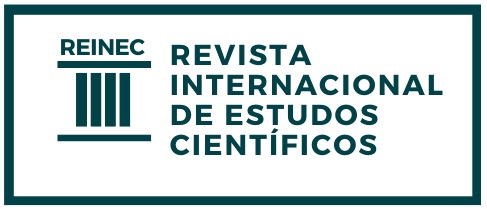A Convergência da Inteligência Artificial e da Interdisciplinaridade: Impactos e Desafios para a Ciência e a Sociedade
The Convergence of Artificial Intelligence and Interdisciplinarity: Impacts and Challenges for Science and Society
La Convergencia de la Inteligencia Artificial y la Interdisciplinariedad: Impactos y Desafíos para la Ciencia y la Sociedad
JOSÉ RIVAMAR DE ANDRADE
Resumo
A convergência entre Inteligência Artificial (IA) e interdisciplinaridade tem promovido avanços significativos na ciência e na sociedade. Na introdução, destaca-se a importância dessa integração para solucionar desafios complexos. A fundamentação teórica explora como a IA impacta diferentes áreas, desde a saúde até a educação, enfatizando a necessidade de abordagens colaborativas. Na metodologia, foi adotada uma pesquisa bibliográfica, analisando estudos recentes sobre o tema. As conclusões ressaltam os benefícios e desafios da IA, incluindo questões éticas, transparência algorítmica e a necessidade de regulamentação. O estudo reforça que apenas uma abordagem interdisciplinar poderá garantir o uso responsável e benéfico da IA.
Palavras-chave
Abstract
The convergence between Artificial Intelligence (AI) and interdisciplinarity has driven significant advancements in science and society. In the introduction, the importance of this integration for solving complex challenges is highlighted. The theoretical framework explores how AI impacts different fields, from healthcare to education, emphasizing the need for collaborative approaches. In the methodology, a bibliographic research approach was adopted, analyzing recent studies on the topic. The conclusions underscore the benefits and challenges of AI, including ethical issues, algorithmic transparency, and the need for regulation. The study reinforces that only an interdisciplinary approach can ensure the responsible and beneficial use of AI.
Keywords
Resumen
La convergencia entre la Inteligencia Artificial (IA) y la interdisciplinariedad ha impulsado avances significativos en la ciencia y la sociedad. En la introducción, se destaca la importancia de esta integración para resolver desafíos complejos. El marco teórico explora cómo la IA impacta diferentes campos, desde la salud hasta la educación, enfatizando la necesidad de enfoques colaborativos. En la metodología, se adoptó una investigación bibliográfica, analizando estudios recientes sobre el tema. Las conclusiones resaltan los beneficios y desafíos de la IA, incluyendo cuestiones éticas, transparencia algorítmica y la necesidad de regulación. El estudio refuerza que solo un enfoque interdisciplinario puede garantizar el uso responsable y beneficioso de la IA.
Palabras clave
Referências
BARDIN, L. Análise de conteúdo. Edições 70, 2011.
BOOSE, J. H. Inteligência Artificial: Aplicações e Implicações. Addison-Wesley, 1994.
BOSTROM, N. Superintelligence: Paths, dangers, strategies. Oxford University Press, 2014.
BUOLAMWINI, J.; GEBRU, T. Gender Shades: Intersectional accuracy disparities in commercial gender classification. Proceedings of Machine Learning Research, 81, 1-15, 2018.
DOSHI-VELEZ, F.; KIM, B. Towards a rigorous science of interpretable machine learning. arXiv preprint arXiv:1702.08608, 2017.
FLICK, U. Triangulation in qualitative research. A companion to qualitative research (pp. 178-183). SAGE Publications, 2004.
FLORIDI, L. The Ethics of Artificial Intelligence for Good. Springer, 2020.
HASSABIS, D.; KUMARAN, D.; SUMMERFIELD, C.; BOTVINICK, M. Neuroscience-inspired artificial intelligence. Neuron, 95(2), 245-258, 2017.
JOBIN, A.; IENCA, M.; VAYENA, E. The global landscape of AI ethics guidelines. Nature Machine Intelligence, 1(9), 389-399, 2019.
NATURE COMPUTATIONAL SCIENCE. (2021). Aims & Scope. Discponível em: https://www.nature.com/natcomputsci/aims Acesso em 08/05/2024.
PAGANI, R. N.; KOVALESKI, J. L.; RESENDE, L. M. M. (2015). Methodi Ordinatio: A proposed methodology to select and rank relevant scientific papers encompassing the impact factor, number of citation, and year of publication. Transinformação, 27(1), 93-98. Disponível em: https://doi.org/10.1590/2318-08892015002700008, acesso em 05/08/2024.
RAHWAN, I., Cebrian, M.; OBRADOVICH, N.; BONGARD, J.; BONNEFON, J.-F.; BREAZEAL, C.; WELLMAN, M. Machine behaviour. Nature, 568(7753), 477-486, 2019.
SOUZA, J. F.; AMARAL, F. F. A convergência da inteligência artificial e da educação: Perspectivas para o aprendizado do século XXI. Revista Brasileira de Educação, 28, e280028, 2023.
STRUBELL, E.; GANESH, A.; McCALLUM, A. Energy and policy considerations for deep learning in NLP. Proceedings of the 57th Annual Meeting of the Association for Computational Linguistics, 3645-3650, 2019.
UNESCO. (2021). Recomendação sobre a Ética da Inteligência Artificial. UNESCO. Disponível em: https://unesdoc.unesco.org/ark:/48223/pf0000380455 Acesso em 05/08/2024.

